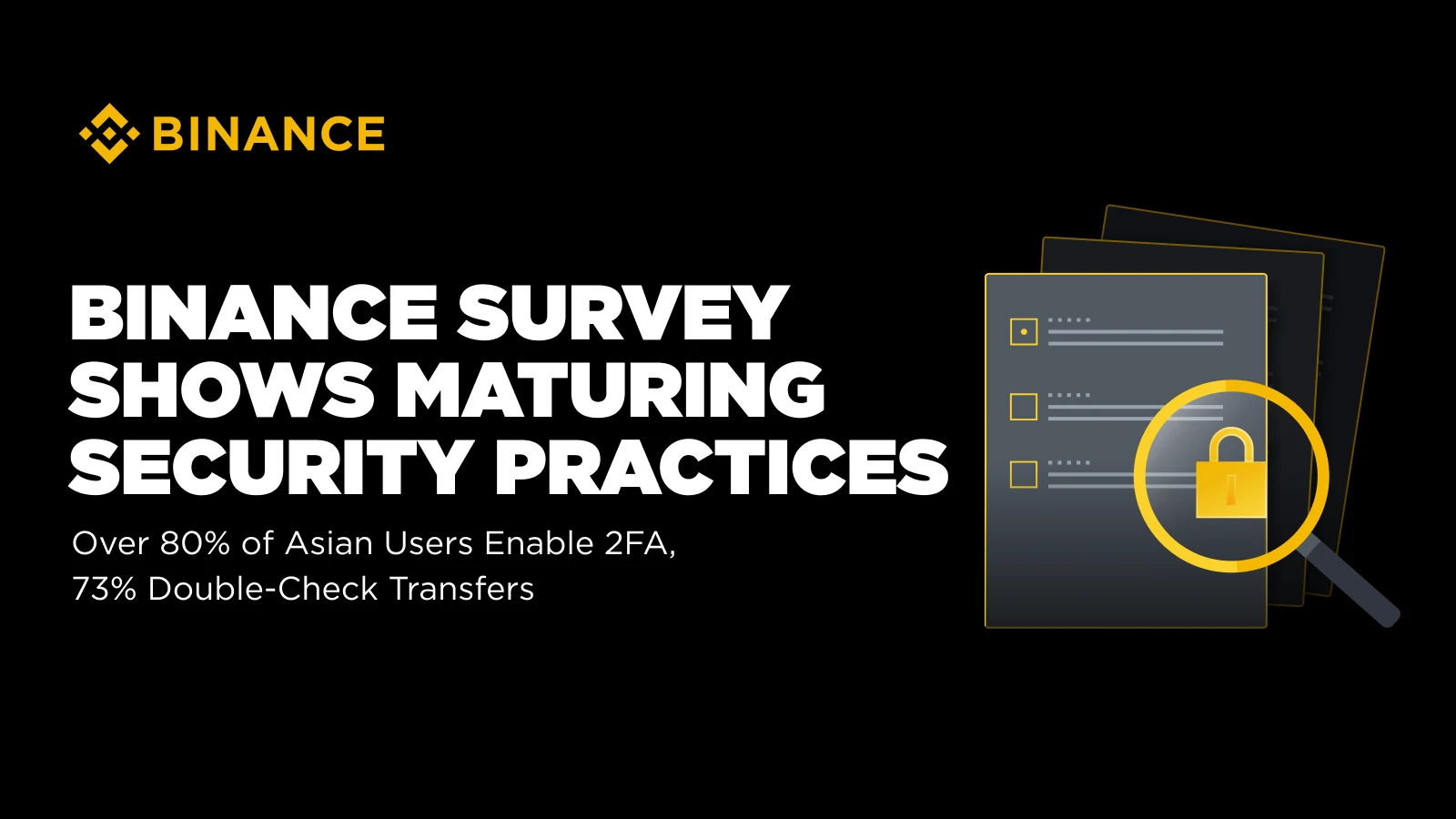
根据币安一项大规模用户调查显示,超过80%的受访者已启用双重验证(2FA),84%的受访者表示信任如币安投资者保护基金(SAFU)等保护机制,展现出用户的安全意识显著提升,且对由交易所主导的保护系统信心逐渐增强。
这项名为《亚洲加密安全调查》的问卷共收集了来自东南亚、南亚与东亚地区用户共计29,847份有效回复,是目前为止最全面的区域观察之一。调查深入了解区域内用户如何看待并实践安全措施,以及交易所与行业可以如何通过工具、教育与主动防护机制进一步为用户提供支持。
从“意识”迈向“行动”:安全习惯正在改变
调查数据显示,47.2%的受访者是高频交易者,每日多次使用加密货币交易所。而值得注意的是,近三成受访者是在过去六个月内才进入加密市场,反映出亚洲市场的快速增长。
尽管用户数量迅速扩大,调查也揭示出一个明显的安全行为差异:虽然多数用户具备基本的防护意识,但对进阶防护机制的采用仍较为不足:
●80.5%的受访者已启用2FA,显示用户对基本安全措施认知良好。
●仅17.6%受访者启用地址白名单机制,21.5%受访者会使用防钓鱼验证码。
●此外,34.4%的受访者会将私钥储存在联网设备上,在东南亚这一比例甚至高达42%。这些行为凸显出持续教育与实用工具在简化安全防护流程中的重要性。
●值得欣慰的是,73.3%的用户会在转账前复查收款地址,显示出用户在日常操作中对风险管理的高度重视。
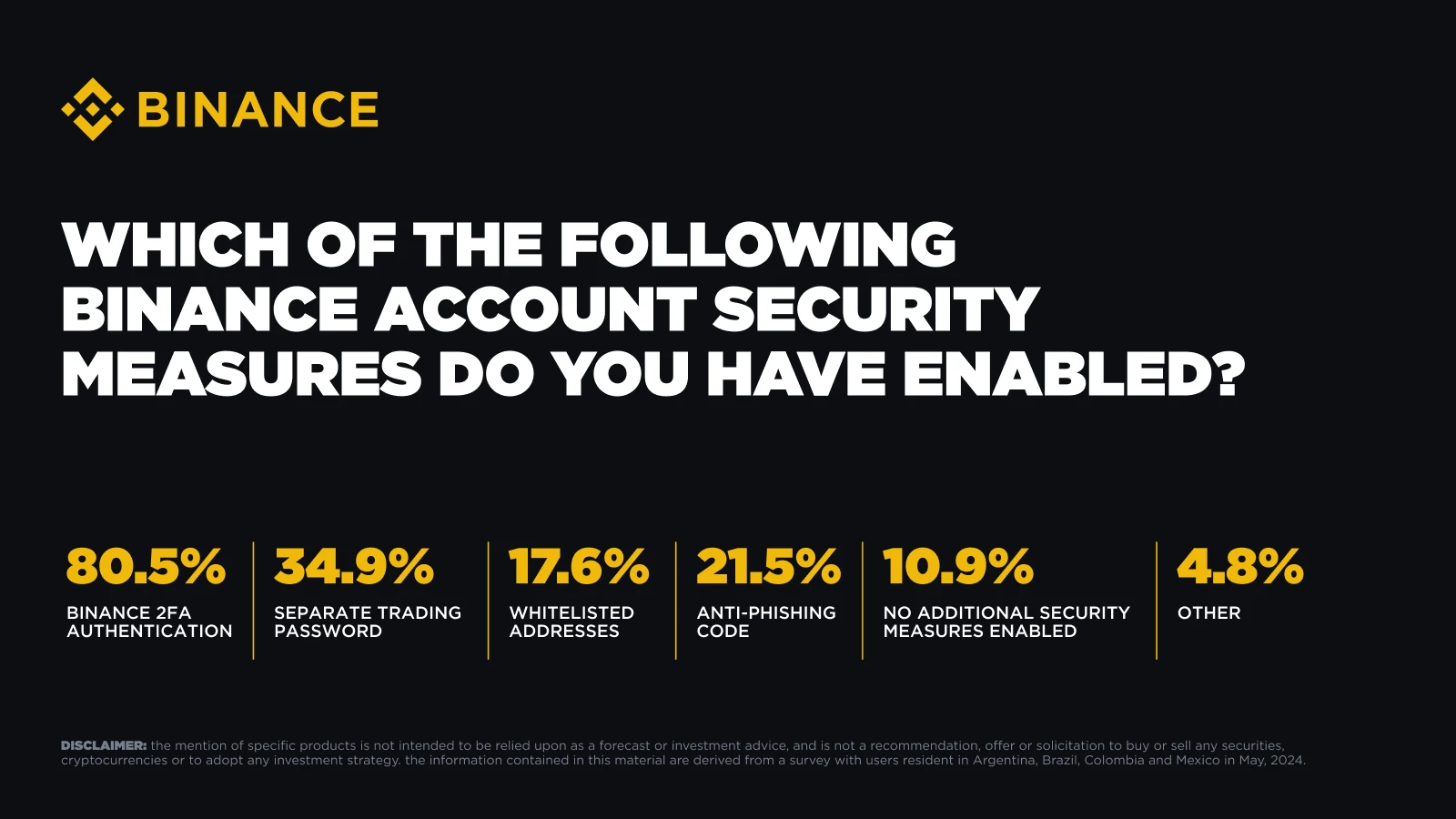
总体来看,调查显示持续性的教育对推动用户有信心采取更高级别的安全措施至关重要。
用户更主动,对交易所信任同步提升
调查指出,尽管有40.7%的受访者曾遭遇加密相关诈骗,但多数人展现出更高的应变能力:
●超过一半受访者(53.4%)表示,一旦遇到诈骗,会立即联系交易所冻结资产,展现出基本应对准备和对平台应变能力的信任。
●另外,84%的受访者表示,他们信任如币安投资者保护基金(SAFU)等保护机制。
尽管如钓鱼链接(69.5%)、虚假内幕消息(54.9%)与虚假空投(52%)等常见诈骗手法仍在出现,但调查结果显示,越来越多用户已经能够识别潜在风险信号,更加理性、主动,并愿意使用平台提供的安全机制。
从被动到主动:用户对交易所安全性提出更高期望
调查结果指出,用户的期望已明显转变——从过去的被动防护,转向实时、智能化的威胁管理。用户越来越希望交易所能主动识别、预防并缓解潜在威胁,在损失发生前即及时应对。
●62.5%的受访者将“实时威胁拦截”列为首要安全需求,显示对自动防御与预警系统的强烈需求。
●50.4%的受访者希望交易所具备设备层面的威胁检测能力,例如识别恶意软件与提示设备被入侵。
●近一半受访者支持建立可疑地址数据库与引入生物识别认证,以加强身份保护。
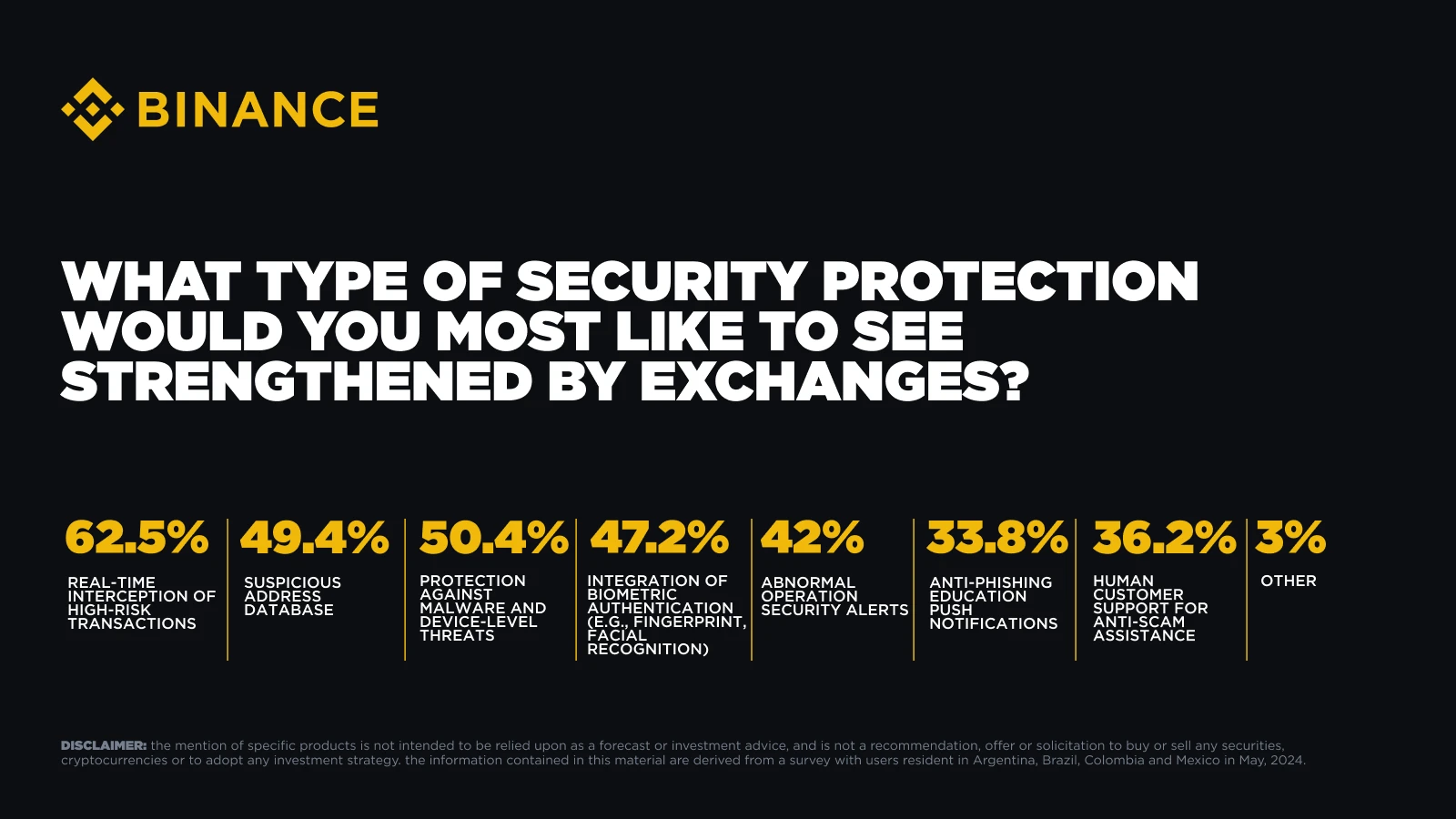
这种趋势反映出用户心态的转变:交易所不再只是资产交易平台,用户期望像币安这样的行业领导者能树立新标准,尤其是在打造智能且直观的安全系统。
用户最重视私钥保护,币安以MPC技术强化钱包安全
在去中心化钱包方面,用户最重视的是具备更强控管力与智能威胁检测的功能。调查显示,钱包不仅是资产存放工具,更是保障资产安全的关键防线:
●62.8%的受访者将加强私钥保护列为他们最期待的钱包功能——突显用户对直观且安全的自我托管工具的强烈需求。
●50.4%的受访者希望钱包提供更完善的备份与恢复选项,以增强他们的安全感与资产掌控能力。
●超过40%的受访者支持集成主动诈骗检测工具,例如钓鱼警示、可疑交易监控和黑客防护功能。
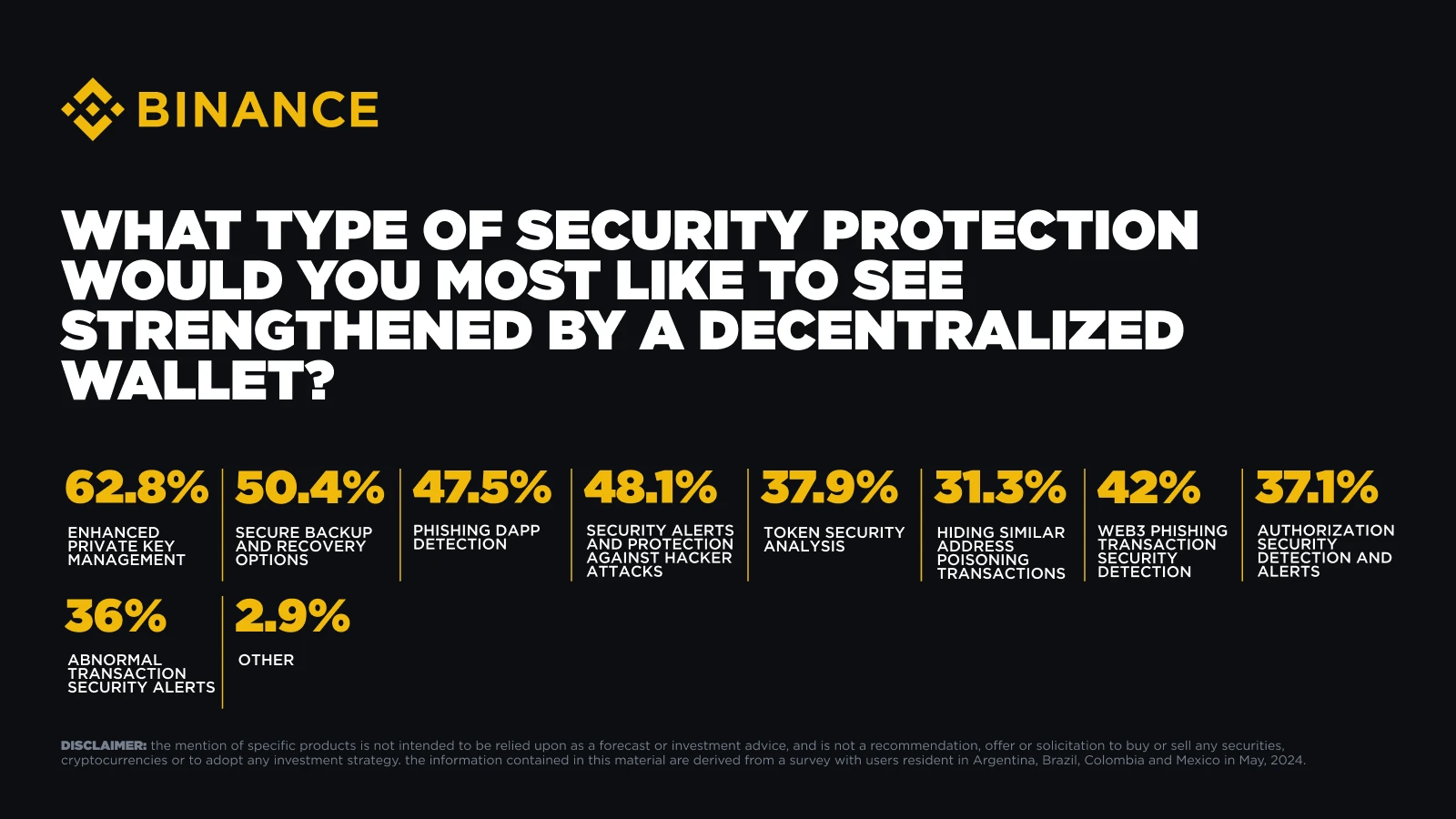
币安通过“币安钱包”满足这些用户需求,该钱包在去中心化领域中扮演重要角色。它采用MPC(多方计算)技术,免去助记词的需求,并将私钥分拆为三个加密密钥分别管理,以增强安全性。
简单且本地化的教育是缩小安全差距的关键
教育仍是用户安全防护的基石。调查显示,用户希望获得更实用、易获取的学习资源:
●55.8%的受访者认为现有教材“过于技术性,难以理解”
●39.7%倾向于看到本地化的真实案例分析,以提升实际认知能力
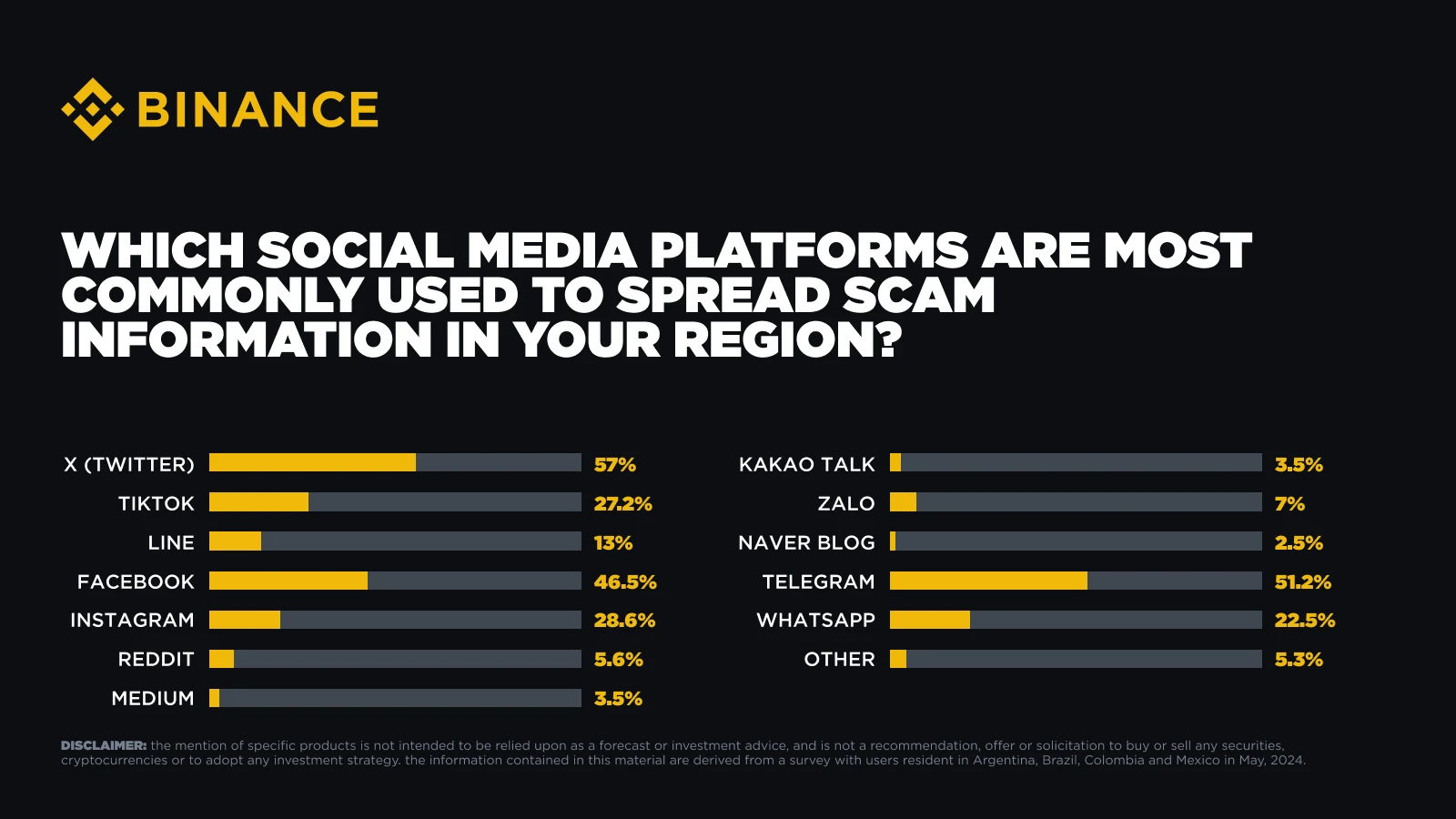
为了推动反诈骗教育,有效了解用户最常接触误导性或诈骗信息的渠道也非常重要。在亚太地区,常见的诈骗信息集中于X(原Twitter,占57%)与Telegram(51.2%)。但在不同市场渠道略有差异——东南亚最主要的平台是Facebook(61.1%),而在印度,WhatsApp是关键渠道(42.5%)。
61.3%的受访者表示愿意参与由交易所主导的“反诈骗模拟测验”来提升安全意识,特别是当这些测验结合奖励或游戏机制时,显示出用户不仅愿意学习,而且渴望学习。
币安安全团队定期发布通俗易懂的文章,拆解如短信诈骗(smishing)、钓鱼攻击(phishing)等复杂议题,帮助用户弥补知识差距的同时,也保留所有关键细节。欢迎查看币安的安全专栏系列,开启一段充满洞察的学习旅程,帮助你识别潜在风险!
币安:全面强化安全防护
根据 Chainalysis 2025年《加密犯罪报告》指出,2024年被用于非法活动的钱包地址共接收了约409亿美元的加密资产。尽管随着更多非法地址被识别,这一数据可能进一步上升,但非法交易额在整体链上活动中的占比已显著下降,从2023年的0.61%降至0.14%,这表明行业普遍采取的主动安全措施正在奏效。
币安持续在安全领域保持领先,并加大对平台安全性与合规性的投入,投入数亿美元用于加强平台防护与建设行业韧性。
币安首席安全官 Jimmy Su 表示:“仅在2024年,我们就成功防止了超过42亿美元的潜在用户损失,协助追回8800万美元的被盗或丢失资产,并保护超过280万名用户免受恶意攻击。”
“随着行业不断发展,攻击者的手段也在演变。我们正在大力投资本地化、实用且易于理解的反诈骗教育,贴近用户需求;同时也加速部署实时风险检测系统,并与亚洲各地的监管机构与执法单位密切合作,以更好地保护用户资产。”
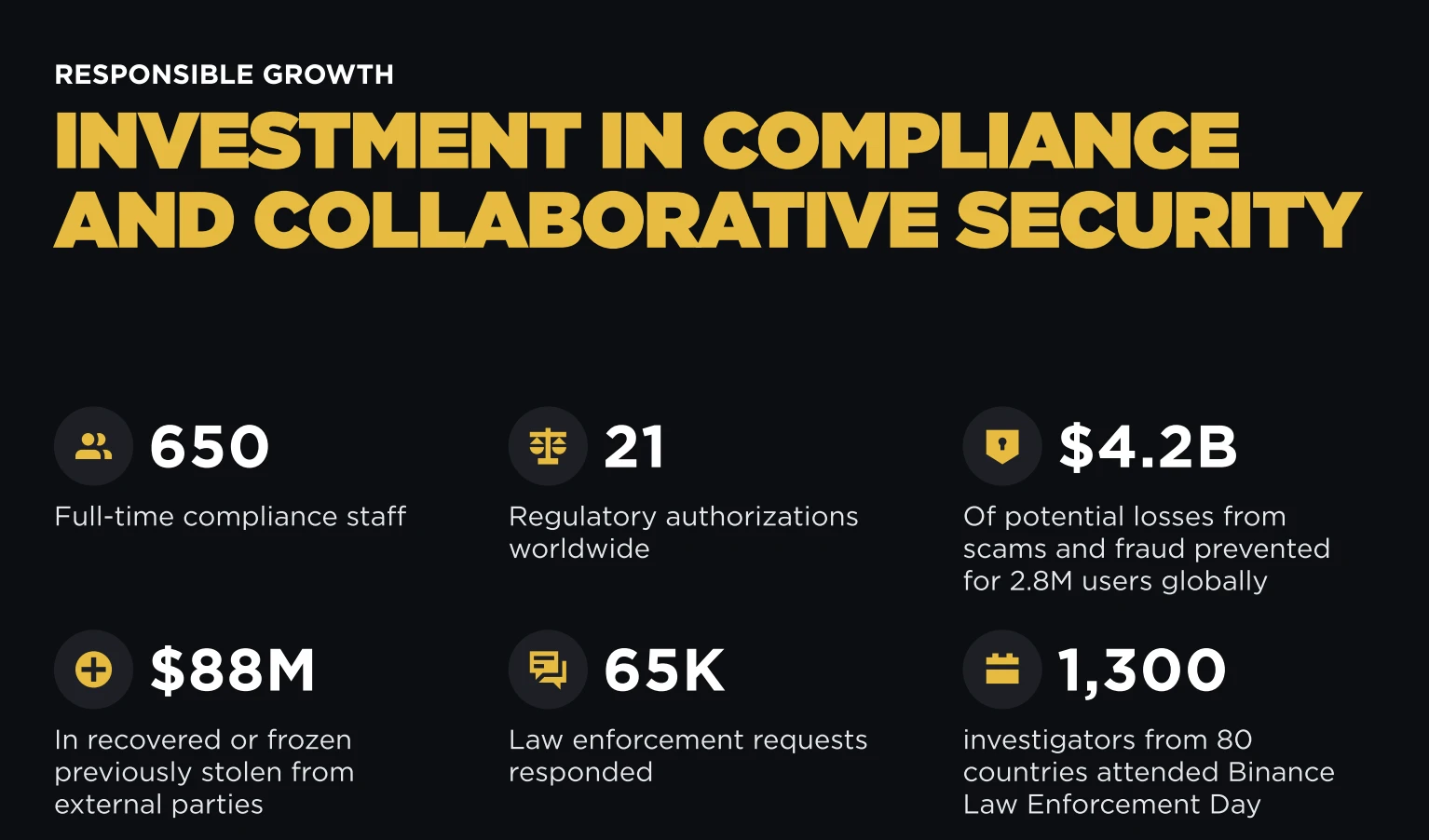
免责声明:本文章仅代表作者个人观点,不代表本平台的立场和观点。本文章仅供信息分享,不构成对任何人的任何投资建议。用户与作者之间的任何争议,与本平台无关。如网页中刊载的文章或图片涉及侵权,请提供相关的权利证明和身份证明发送邮件到support@aicoin.com,本平台相关工作人员将会进行核查。




